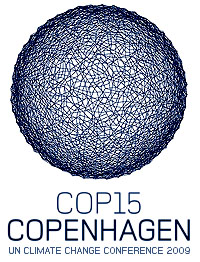A couple of months ago — if not earlier — it became pretty clear that this week’s Copenhagen conference wasn’t going to produce the big climate treaty everyone had been hoping for.  Ever since, participants have been trying to figure out how to salvage things, and today Jonathan Pershing, the Obama administration’s deputy special climate change envoy, took his crack at the spin machine. David Corn reports:
Ever since, participants have been trying to figure out how to salvage things, and today Jonathan Pershing, the Obama administration’s deputy special climate change envoy, took his crack at the spin machine. David Corn reports:
Speaking to about 200 people from various environmental groups, Pershing made the case that a non-binding political agreement — in which the world’s biggest emitters of greenhouse gases would pledge to take various actions to reduce their own emissions — would be more effective than a treaty establishing firm and legally enforceable commitments, according to several people who attended the session.
….Pershing, a well-known scientist who has worked on climate change for decades, maintained that a binding treaty — which would mandate emission reductions and contain penalties for noncompliance — could easily stall. It would have to be ratified by the U.S. Senate (which would require 67 votes) and winning Senate approval would be no easy feat for the Obama administration. (The Senate does not yet have the 60 votes need to block a filibuster of pending climate change legislation.) Other nations also would have to approve it. He pointed out that the 1997 Kyoto global warming accord, which the US Senate never approved, took five years to be ratified around the world. If Copenhagen did produce a binding treaty, Pershing said, it would be years before it could go into effect. In the meantime, emissions would continue to flow. A political deal, he contended, could kick in immediately
As spin goes, I suppose this isn’t bad. It’s true, after all, that the prospect of getting 67 votes to approve a climate treaty in the Senate is piss poor.1 So perhaps this really is our only realistic alternative. Still, it’s the Obama administration’s biggest climbdown yet, and one that suggests that Obama believes Waxman-Markey is the best we’re going to be able to do in the near term. Unfortunately, he’s probably right.
1Though there’s always the possibility of ratifying it as an executive agreement with only 60 votes, as NAFTA and other international agreements have been.

















